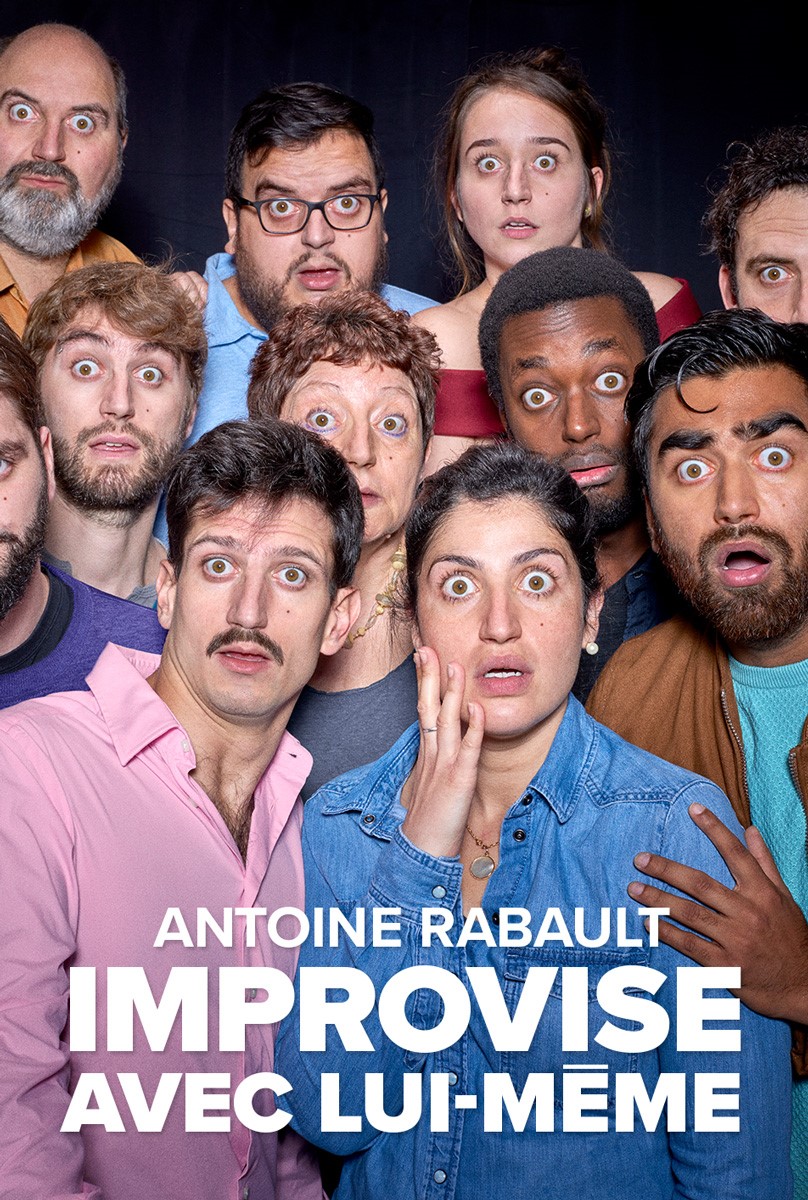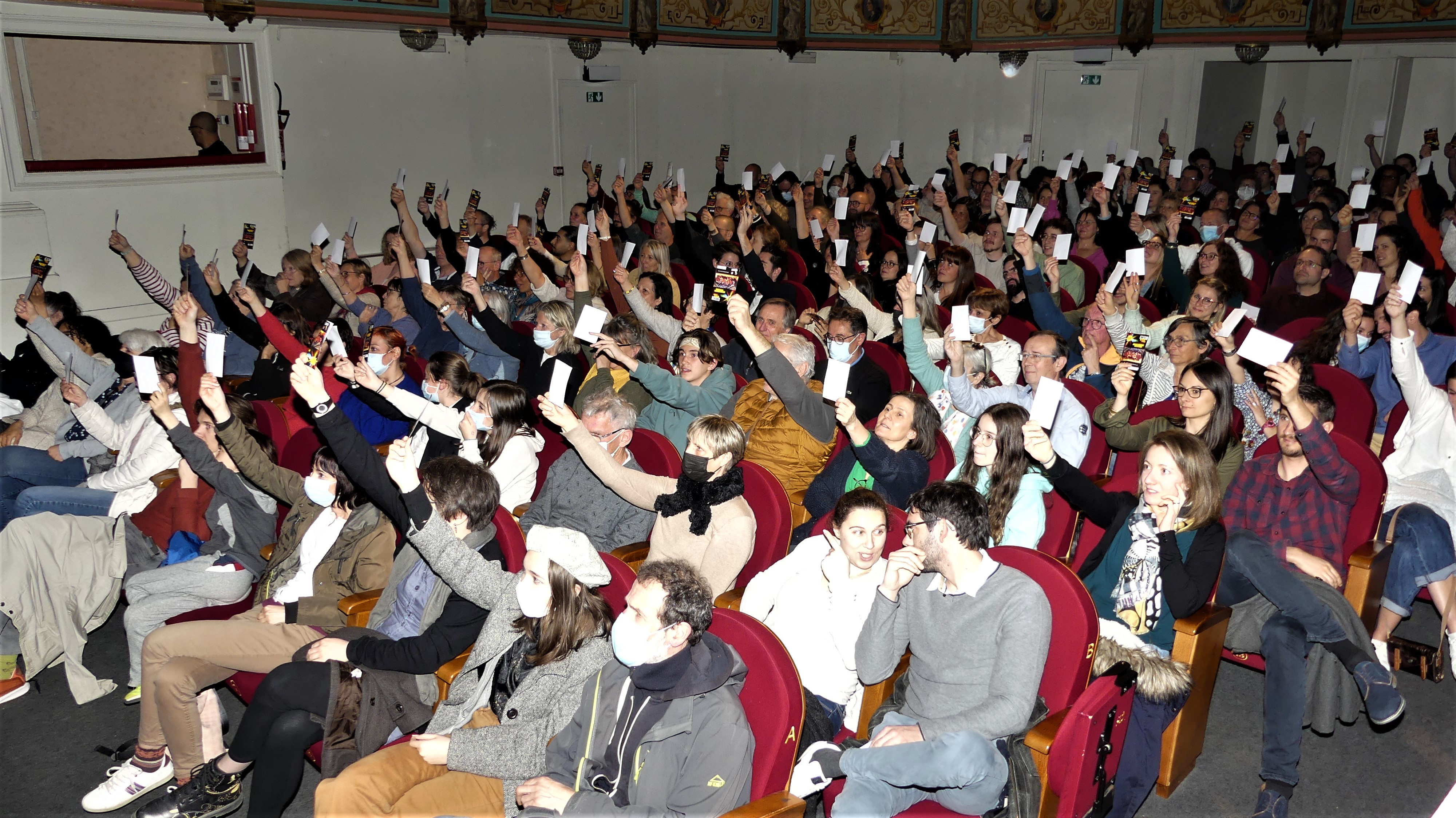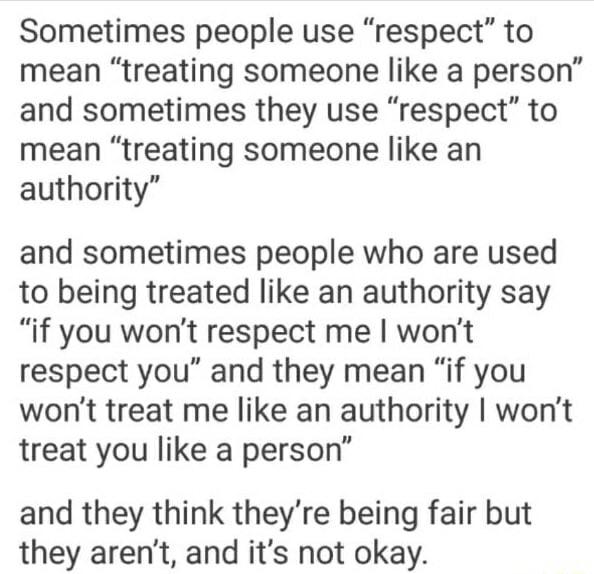This post is a call-out related to my recent removal from Impro France, the largest French Facebook improv group. It is also a description of how white supremacy works and creates over-representation of white people in improv.
This post is in English so that you can share its content widely. Pour la version française, c’est par ici.
If I tell you that French improvisation is white with a high tolerance for racist discourse, and that’s shocking to you, read the context part of this article. If you’re like « Duh! », you can skip!
A few words about me
I am a queer French improviser of color (from North Africa). I have been performing and teaching improv for about 15 years. A few of my contributions to improv have been: creating troupes (META, Smoking Sofa), organizing one of the first convention/festival to talk about improv in France (le carré de l’impro), contributing to the launch of Again! Production, holding one of the few French blogs on improv, touring the USA a few times with the Parisian Gentlemen of Paris, holding a license for Gorilla theatre from the ITI, writing for Status, working with the CTC, winning a couple of awards for directing improvised and scripted work, teaching and being a part of the core teachers of Improvidence (the first French theatre dedicated to improv), and making a series about how to create safer spaces in improv for the improv learning center.
Context
Improvisation in France is very white. Try the following game: google « affiche impro » (means improv poster in French). Count the number of people of color (POC). You won’t find many. Additionally, there are to the best of my knowledge two institutions that are fully dedicated to improvisation in France: Improvidence (a theatre I work for) in Lyon and Bordeaux, and Improvibar. I encourage you to look for POCs in there too. They’re… rare.
You will also find posters of white people impersonating POCs (See picture).
That is not to say that these places intentionally discriminate. Despite a few bright examples of improvisers of color in France, the vast majority of improvisers are whiter than France, and there’s limited option for institutions to have diverse programming, although I’ve seen the Improvidence feature more diverse programs when it can.

Racial statistics are forbidden in France since the trauma of the French government participating in the Holocaust. This prevents us today from analyzing how much discrimination happens. However, if you look at lineage (people with at least one grandparent from outside of Europe), estimations are that 15% of the population in France is not white (excluding Caribbean French territory). In cities, and for younger populations, that percentage gets much higher (30%-40%).
So why are white people so over-represented in improv? Well, on top of being white, improv tolerates racism pretty well. It is a common trope for white improvisers to imitate POCs for comedic effect, as illustrated by this blog article which features a fake interview of Michel Leeb (a white comedian that does blackface/yellowface-style impersonation). More recently, one of the most prominent French troupes, Eux, has created a show called « Racists at the airport » featuring a teaser made up entirely of racist jokes. The show received no public criticism to the best of my knowledge, and was featured in Paris big improv festival.
Paye Ton Impro is a Facebook page that features testimonies of aggressions in improvisation. It is littered with stories of sexual assault, violence, queerphobia, and sexism, both in training and onstage. Given the lack of POCs in improv, the reports of racism are more scarce, but daunting: here someone describes a big racist foreign accent fest, here someone describes being discriminated against by a player who would tell him to go cook some stereotypical regional dishes to get him offstage.
To the best of my knowledge, discussions about racism and diversity are completely absent from French improv. Why is there no criticism? Why do people tolerate that? Well, guess what the audience looks like.

What happened?
So how did I get kicked out of the largest French improv group on Facebook?
A friend of mine (POC) reached out sharing that they were pretty shocked by some of the conversations going on in the group. I don’t really follow what goes on in the group anymore as I am divesting myself of listening to the opinions of white men (which I’ve done for a large part of my life already; I’m doing the other half of it listening to other perspectives). So I get there, and there’s a post that starts with: « I want to do a workshop on accents, do you have any available resources ». From there, this is a summary of what followed:
- I share my perspective that I think it’s okay for white people to imitate the diversity of their accents, but I think it is racist for white people to imitate people of color, and I share some resources (the problem with Apu, and some links to minstrel shows and blackface).
- I am unsurprised to see that Ian Parizot, the creator and admin of Impro France, is defending the use of POC accents for white people. Ian and I have known each other for a long time, and his position is very consistent with his world views.
- I find that position racist and I share that opinion.
- The admins set up a slow down of the comments on the post, which Ian ignores, and thus he is able to respond to many threads, therefore elevating his voice and point of view in the debate. I call it out, and no admin addresses it.
- The tone of the exchange gets more terse as Ian uses fallacies and emotional appeals to defend his case (ridiculing affirmative action, which has proven to be very effective in the USA) and I harshly criticize his method. He responds by harshly criticizing my tone (as a participant, he mentions). That’s a classic derailment tactic called tone policing. It encompasses all tactics that displace the center of the conversation from the point to how the point is made. It generally includes people being uncomfortable with displays of anger and perceiving description as attacks.
- I then write a fairly long, detailed, and articulate response to address his concerns, and I de-escalate the tone. I make a couple of points clear: as long as improv is majority white (on stage and in the audience) and POC are quasi-absent, there will be no way for white people to imitate POCs without it being racist as it is rooted in a tradition that served to propagate views that allowed the dehumanization of POCs and their enslavement and colonization. Maybe one day, if improv is diverse, we can poke fun at each other from a position of equality, but as long as improv doesn’t do a better job at diversity, only the white perspective is represented and valued. I also address the question of tone, as I use liberally the words « racist » and « white ». I articulate that a mechanism of white supremacy is that white people experience white fragility, and take those words as insults, as they are usually not very used to being confronted with their whiteness, and like to think of themselves as not racist (but rarely do the work to actually be anti-racist and promote a safe environment for POCs). I refer to the reaction as « pearl clutching » and I articulate how that leads white people to substract themselves from the critique of racism, and leads to the situation we are in: French improv is overwhelmingly white.
- Ian, as an admin, unilaterally decides to close the thread with no justification.
- Respectful of that closure, but observing exactly the mechanism I was describing at play where Ian used his power as an admin to elevate his voice and silence mine, I reach out to him by private message with a little play in 4 acts.

- The first image is a gif that references the pearl clutching, the sentence reads « I made you a little proposal for a change of logo of the group », and the picture is the logo of the Facebook group that usually reads « Improvisation France », replaced by « Improvisation White », and then a little heart. This is (obviously?) a short-hand reference to my previous message, describing how improvisation gets whiter by taking offense to critique of racism, and his decision to silence the voices of POCs (another POC in the conversation was inquiring why the group did not intend to be a safe space and was asked to stop this line of inquiry as out of topic and invited to reach out to the admin in private message).
- I then receive a message from the admins, carried by Maxime Lozach who was representing Ian Parizot and Kitty Cerise, telling me that I was banned from the group for having « lacked respect for an admin ». There was no warning, no attempt at mediation, just a permanent ban. This brought to mind fairly immediately this post from the internet (see below).

- Despite my repeated requests, Maxime failed to articulate why my message was « disrespectful », and justified it by saying it was « aggressive ». This… is exactly my point all over again. Two pictures and a heart are seen as « aggressive » and « disrespectful », and people use their power to exclude POC voices and criticism of racism and abuse of power by white people. Moreover, Ian feels disrespected by this, but still defends imitating POCs. Hypocritical? Sure, especially given that the power imbalance (See the video at the end).
- Despite a long conversation with Maxime who relayed my concerns of their handling of that situation to the other admin, they remain confident in their decision… which is what brings us here.
The admins later re-constructed a story about the fact that only the sub-thread was closed, and that it was closed because of the tone, but none of that was clearly communicated by them at the time of the events. They’re also conflating my critique of Ian as an admin, and Ian as a participant, and of course, it is hard not to, since he clearly used his position of power to advance his position as a participant. They have, to the best of my knowledge, not addressed the abuse of admin power nor taken any actions, despite of all of the mishandling that I pointed out to them. They feel it is appropriate to chose a permanent ban, despite their absence of attempt at mediation, despite the myriad of nuanced options offered by Facebook.
They feel that an important part of this story is that they claim not to be a safe space. I know. I was there when Ian tried to set up an admin team. Having a long experience being an admin for one of the largest groups in the world for safer spaces in dancing (which is a highly controversial topic) and having had to mediate and administrate many conversations about oppression, I remember making two recommendations: first, don’t try to claim being a safe space (I didn’t think it was possible considering that Ian was the creator and admin, and I thought that might mislead some participants to think they were safe in that group, which they very much aren’t); second, don’t make rules about insults or tone, as they are highly political (like « slut » can be both an insult and a feminist word, « racist » can be aggressive for some while a simple description for others…). Ultimately, if your group has rules and admins, you’re always making a choice: you’re either welcoming of racism or POCs, you’re either welcoming of homophobia/transphobia or the LGBTQAI+ community. It’s ultimately about who you choose to protect.
Why am I telling you all of this?
I am not telling you all of this because I want their decision to be changed. As I mentioned, I am checked out of French discourse on improv as long as it is not diverse.
I am also not telling you this because I want to induce a feeling of shame in the reader or the admins. It might/will happen, but that is merely a byproduct of an essential process of reckoning with racism in improvisation. I am not telling you this from a position of superiority. I have done and said some pretty racist stuff. I was lucky enough to have POCs tell me and I also really invested in educating myself on the topic. Especially on tone policing and the fact that someone telling you you’ve said/done something racist is not an attack, but the opportunity for you to act more in line with your values. And when tone policing becomes tone enforcement, you’ve created a safe space for privilege.
I am telling you this because if you’re a French improviser, I’d like you to realize that you’re evolving in a community that is hostile to POCs. It passively and actively silences and excludes them. If that’s uncomfortable for you, then please, do something about it. Start by calling out racism and divesting from improvisation that allows that type of speech.
I am telling you that because if your institution values diversity and works with POCs, I ask you to thoroughly consider what it means to put one of these admins in a position of power (teaching a class, being an administrator, doing some coordination for a festival, etc.). I believe that creating an inclusive environment for POCs in improv requires some self reflection on responsible use of power. It requires openness to criticism. It requires understanding of tone policing. I think the series of choices they have made shows a deep lack of that ability and I would discourage you from hiring them as long as they haven’t done some strong self-education on the topic. Then again, if your audience and your performers look like improvisation in France, and that’s okay with, knock yourself out, I’m sure/I know they are good teachers.
I am also hoping that you will see the mechanism of white supremacy at work: the small abuses of power, the discomfort with criticism of authority, valuing civil tone over racial justice, white fragility… All of that leading to the silencing of POC voices and making improvisation even whiter. White people hear racism and think that it’s about someone actively hating POCs and calling them names, but as long as your intentions are good, it’s okay. They don’t understand that it is a series of small actions and attitudes that works over the long-term to promote white people and drive POCs away. Dismantling that takes a lot of education and intentionality.
If your institution is disproportionately white and you’d like to fight this. Congratulations. Let me tell you- it’s hard. You’re fighting deep segregation and systemic barriers: language accessibility (do you only offer classes and shows in your main language?), income disparity (is there a way for people who face systemic discrimination to access jobs and with low income to access your shows and classes?), housing segregation (where do you train/perform? In what neighborhood?), and racist attitudes and microaggressions (do you have a code of conduct?). It’s hard, but there are steps you can take to improve the situation, which I have detailed in my series on safer spaces for improv.
I am telling you this, because in my current beginner’s class, I have two improvisers of color, and they did a scene that I’ve never seen any white improvisers do. The acting and the content gave me something that felt pretty far away from the imagination of white improvisers. I don’t want them to evolve in the same community I have.
The best time to work on diversity in improvisation was ten years ago; the next best time is now.
A couple of things that I think go well with this already long article:
And this podcast about recent history of comedy.
But also, you know… Maybe take a break?
P.S. : this article has been proofread by 2 white people and is therefore free of biases. (this is sarcasm).